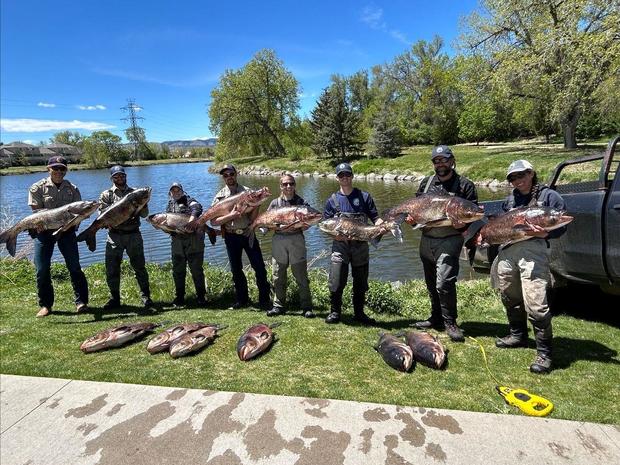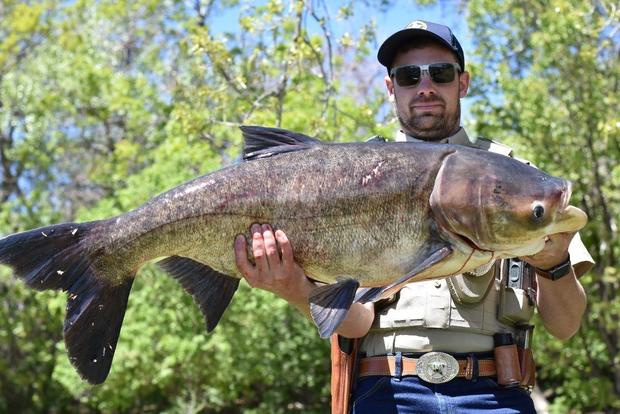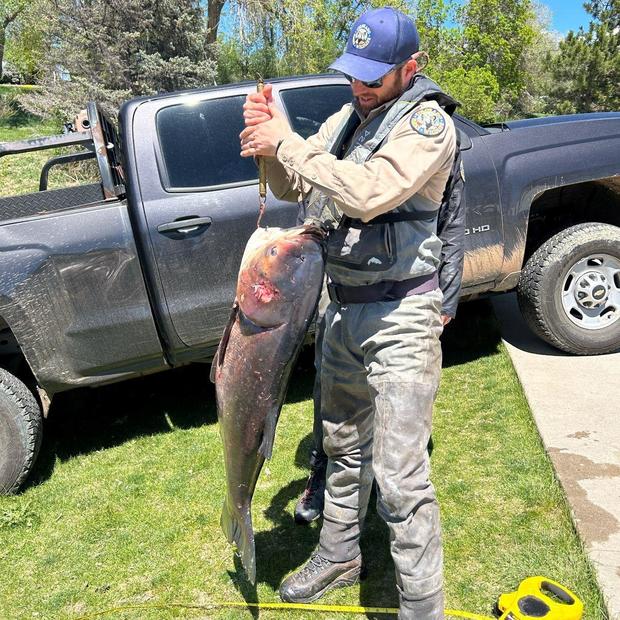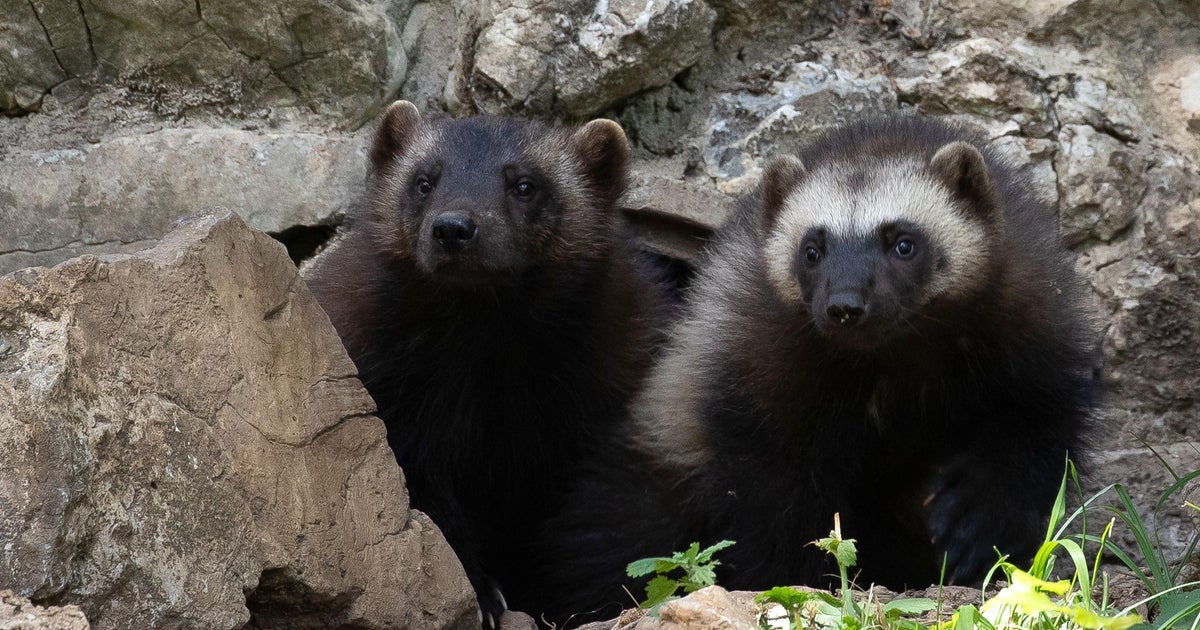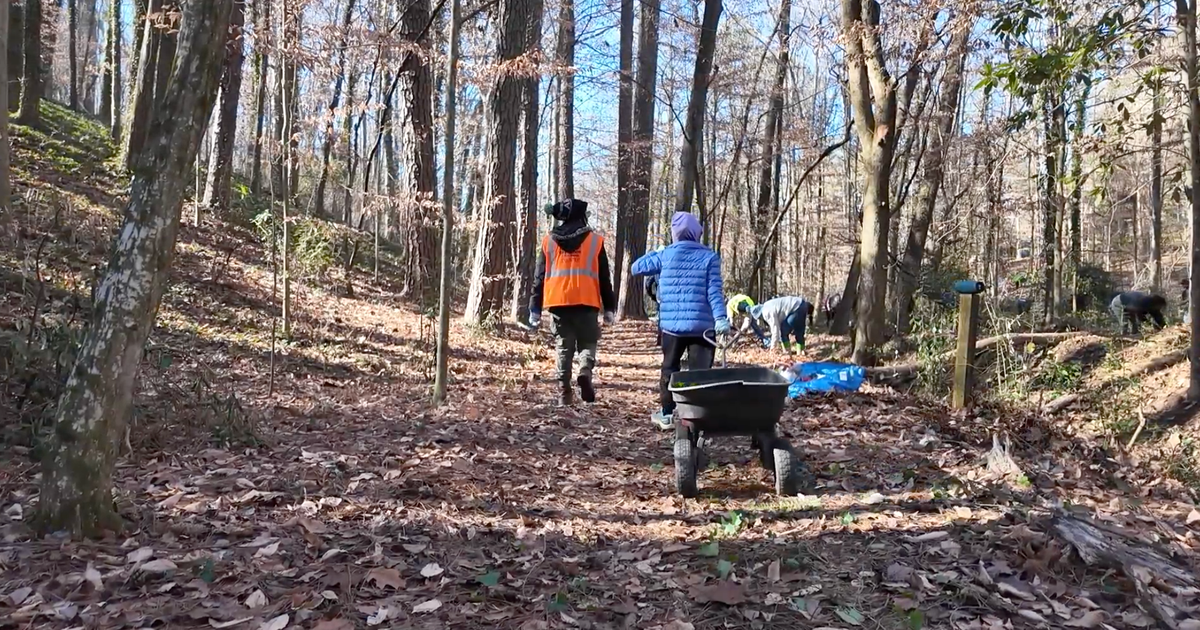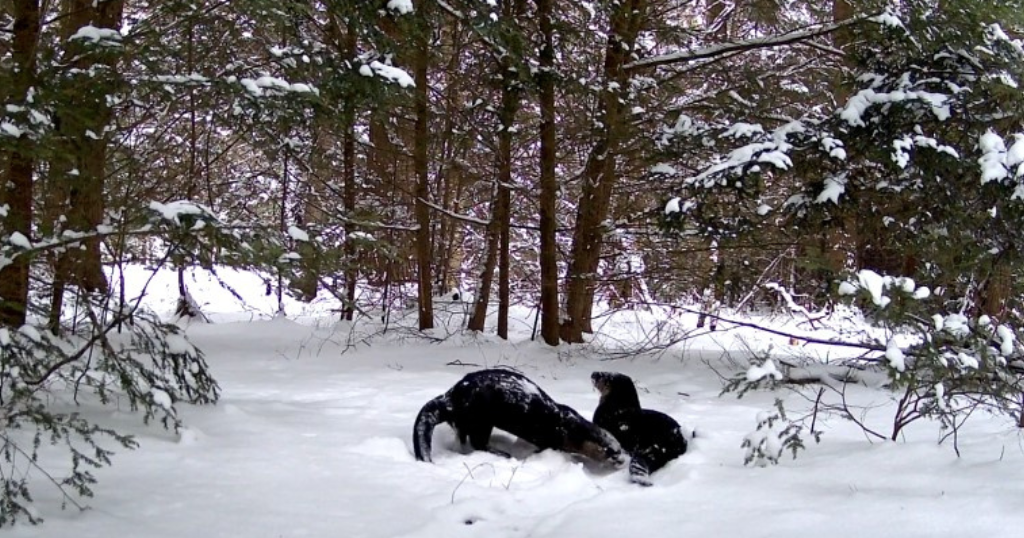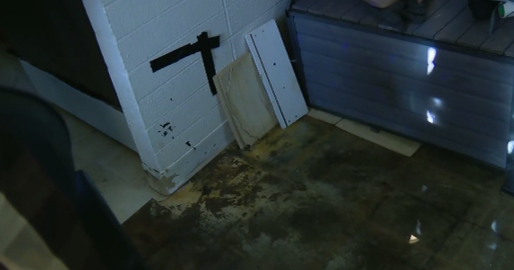Colorado Parks and Wildlife removes invasive bighead carp from Arvada pond
Colorado Parks and Wildlife removed 14 invasive bighead carp from the Jack B Tomlinson Park in Arvada last week. CPW's aquatic biologists pulled the fish from the pond after receiving a tip from the public.
"This operation all started with a tip from an angler," said Philip Sorensen, CPW District Wildlife Manager for Westminster and Arvada in a statement. "We are grateful when the public reaches out to tell us about invasive species in their neighborhoods. We want to know about the presence of invasive species."
CPW also checked out a neighboring body of water to the pond in Jack B Tomlinson Park that was connected by a culvert for the fish. None of the carp were found at the second location.
"Bighead carp are filter feeders and can grow to incredible sizes in both small and large bodies of water," said CPW Invasive Species Program Manager Robert Walters in a statement. "Once established, these fish can outcompete native Colorado species for food and resources."
According to CPW, bighead carp are not native to Colorado and negatively impact the ecosystem because they primarily feed on plankton and compete with native and sport fish species for food.
Each of the 14 fish caught in the pond was at least three feet long. The largest weighed 46 pounds. CPW "found the massive carp by using electrofishing methods which emit electricity into the water, stunning fish into a temporary stupor."
The bighead carp were introduced in 1992 as part of a national study to examine if the species could be effective in reducing nuisance algal plaguing ponds, according to CPW. The fish were supposed to be removed at the end of the study in 1995, however, it seems the carp stuck around.
"The size of the bighead carp removed indicates natural reproduction has most likely not taken place, which was the best case scenario," said Kyle Battige, senior aquatic biologist for the northeast region of CPW, in a statement.
